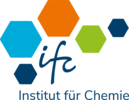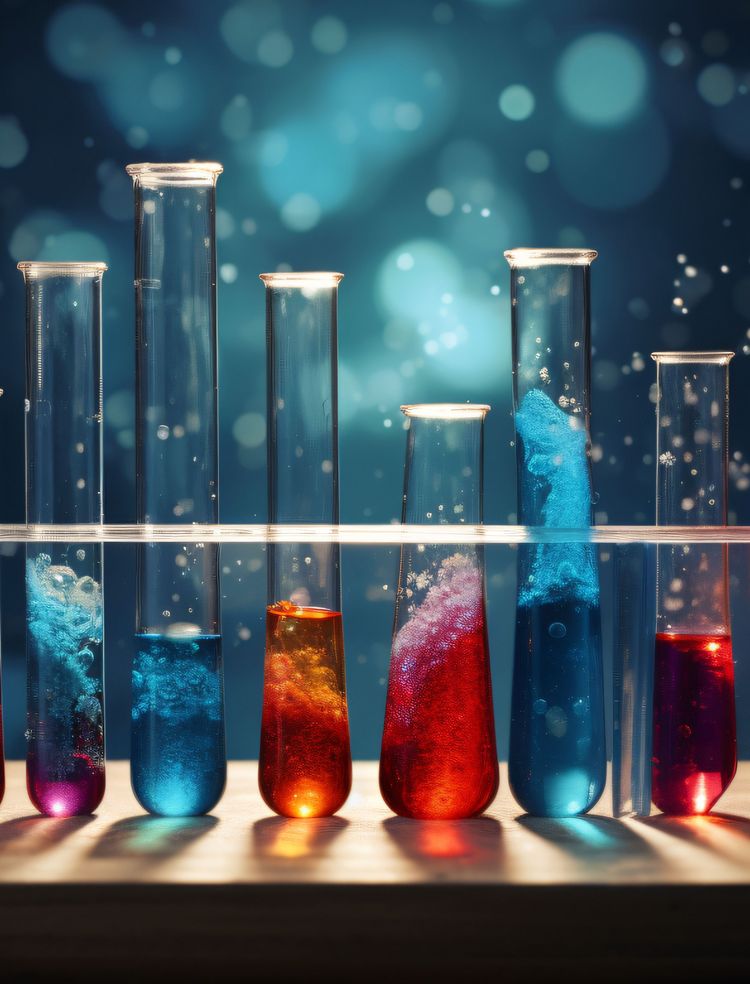Research
In our research group, we pursue three independent yet interconnected research focuses. We work independently, in direct collaboration, or in (inter)national partnerships and are part of the collaborative projects CataLight, PolyTarget and Sensor_Space. A close connection to school practice is central to all our areas of focus.
Research Area 1: Didactic Transfer Research
The focus of our work is the didactic exploration of current chemistry topics for schools and student laboratories. In close collaboration with research groups, particularly at the University of Oldenburg, and other partners, we develop experiments and teaching materials on current and relevant chemistry topics. Currently, we are particularly interested in the fields of nanomedicine, photocatalysis, and green chemistry.
Current third-party funded projects in Research Area 1:
CRC 1278 PolyTarget - Didactic Reconstruction of Current Research at the Intersection of Nanotechnology and Medicine
Project Ö01: cience education on target: Didactic reconstruction of current research at the interface between nanotechnology and medicine (PI: Wilke)
Duration: 2021 - 2025
Funding through the DFG
Website
In project Ö01, we explore key findings of the Collaborative Research Center PolyTarget at the intersection of nanotechnology and medicine for chemistry education. Using the model of didactic transfer research as a structuring framework, we develop teaching materials and meaningful (model) experiments, assembling them into teaching sequences. In a cyclical design, we test, evaluate, and optimize these at partner schools. Finally, we publish the practice-tested materials as open educational resources.
TRR CataLight 234 - Shedding Light on Chemistry Education: Didactic Reconstruction of current research for formal and non-formal education
Project Ö01: Shedding Light on Chemistry Education: Didactic Reconstruction of current research for formal and non-formal education (PI: Wilke)
Funding period: 2021 - 2022 und 2022 - 2026
Funding through DFG
Website
In subproject Ö01, we scientifically and significantly support the public and scientific outreach of Transregio 234, promoting the transfer of knowledge to chemistry education and society. For this purpose, we reconstruct scientific results on the central questions and objectives of CataLight. The developed working materials and (model) experiments are then arranged for schools, student laboratories, teacher education, and public events.
Research Area 2: Digital Tools and Teaching-Learning-Concepts
STEM education is currently undergoing a fundamental transformation due to advancing digitalization. This transformation is accompanied and facilitated by new digital tools and platforms, with numerous projects being introduced, ranging from 3D printers to virtual reality headsets. But which of these technologies will endure in classroom practice, and which are sustainable in the long term? Our second research focus is dedicated to answering these questions. In this context, we develop digital tools that provide real added value for teaching (LabPi) and create teaching-learning concepts to sustainably integrate these tools into school practice.
Ongoing third-party funded projects in Research Area 2:
Digital, low-cost measurement station LabPi
Low-Cost, High-Tech, LabPi is a digital measurement station designed for use in schools, student laboratories, university teaching, and research. By combining a powerful station with precise sensors and innovative technology, new teaching and learning opportunities arise for STEM education 4.0. More information and an overview can be found at https://www.labpi.de.
BMBF MINT-Cluster Sensor_Space
Adaptation and Manufacturing of Sensor Kits for Mobile Environmental Sensing (PI: Wilke)
Funding period: 2023 - 2025
Funded by the BMBF
Website
In Sensor_Space, children and young people learn tools, skills, and competencies for developing and applying future technologies. Courses and working groups in the afternoons, as well as additional event courses, are designed to complement school lessons, with a focus on hands-on experimentation. The following topics are explored in Sensor_Space:
- Programming, CNC, Automation, Big Data, IoT Data Processing, Artificial Intelligence
- High-Tech Manufacturing: Soldering, Milling, Ceramic Manufacturing, 3D Printing, Production Control and Evaluation
- Fundamentals of Sensor Technology
The Sensor_Space offerings are primarily available to students from approximately 40 secondary schools (regular schools, high schools, and comprehensive schools) in East Thuringia. Around 15,000 students aged 10 to 16 have the opportunity to get to know Sensor_Space through various events. The goal is to reach about 300 to 500 students per year with weekly offerings after the participatory laboratory's setup phase. A pedagogical STEM specialist and trainers from various companies will support the implementation of Sensor_Space.
The MINT cluster Sensor_Space is funded by the BMBF. The second funding phase begins in November 2023. In addition to the Chemistry Education Research Group in Oldenburg, project partners include the Foundation for Technology, Innovation, and Research Thuringia, the District Office Saale-Holzland-Kreis, the Fraunhofer Institute for Ceramic Technologies and Systems, and particularly the Tridelta Campus Hermsdorf e.V.
Research Area 3: Digitalization in out-of-school laboratories
Digital media are attributed with the potential to make students experts in their own learning. If this potential is successfully utilized, significant contributions can be made to the improvement and individualization of teaching, which can then be transferred into practice. In our research group, we are expanding the student and teaching-learning laboratory ChemOL to include the research and use of digital media with accompanying teaching concepts. This digitalchemlab is a synergistic addition to the already existing classical student laboratory. The goal is to build a platform that leverages the potential of digital media for teaching and instruction, thereby promoting the improvement and transformation of current learning offerings.
Ongoing third-party funded projects in Research Area 3
digitalchemlab - digital-differentiated learning in out-of-school laboratories
Funding period: 2022 - 2024
Funded by the Joachim Herz Foundation
In the research project, a new concept (digitalchemlab) for the use of digital media in student laboratories will be tested and empirically investigated. In addition to studying a digital pilot learning module, further digital learning modules will be developed based on a similar model.


